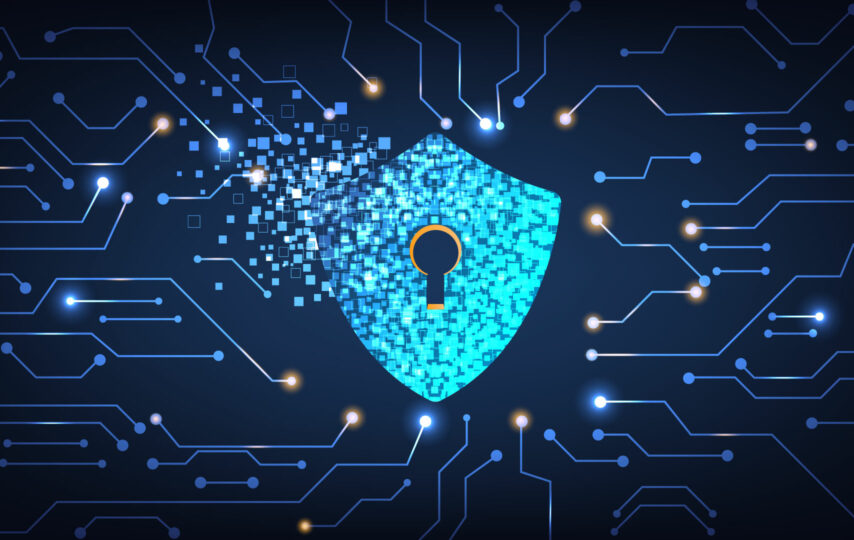In today’s digital age, cyber security is no longer an option—it’s a necessity. With cyber threats evolving daily, businesses of all sizes face the constant challenge of securing their data, systems, and networks. This is where automated cyber security steps in, acting as a proactive shield against cyber attacks. But what makes automated cyber security such a game-changer? Let’s delve into its benefits, explore how it helps both small and large enterprises, and look at some real-world examples of its impact.
The Rising Need for Automated Cyber Security
Cyber threats are becoming increasingly complex, targeting vulnerabilities through ransomware, phishing, and other malicious tactics. Organizations that solely rely on human-led cyber security teams often struggle to keep up with these rapidly evolving threats. Manual monitoring and threat detection can be time-consuming, error-prone, and costly.
Automated cyber security addresses these challenges by using advanced algorithms, machine learning, and artificial intelligence (AI) to monitor, detect, and respond to threats in real-time. It enables businesses to stay a step ahead, reducing the likelihood of successful attacks and minimizing damage if an attack does occur. For both small and large enterprises, this can make a world of difference.
How Automated Cyber Security Works
At its core, automated cyber security uses AI and machine learning to enhance traditional cyber defenses. Here’s a glimpse into some of its primary functions:
- Continuous Threat Monitoring: Automated systems constantly monitor network traffic and user behavior for signs of anomalies. For instance, if an employee’s login pattern suddenly changes or a massive data transfer occurs, the system raises a flag.
- Behavioral Analytics: With AI-driven behavioral analysis, automated systems learn typical patterns over time, helping to detect abnormal activities more accurately. This is particularly helpful in spotting insider threats or compromised accounts.
- Automated Incident Response: Traditional security systems often rely on humans to identify threats and respond to incidents. Automation speeds up this process, allowing for near-instant responses. For example, if malware is detected on a device, the system can automatically quarantine the infected machine to prevent further spread.
- Data Encryption and Compliance Checks: Automated solutions help ensure compliance with industry regulations, such as GDPR, HIPAA, and PCI-DSS, by regularly checking systems for compliance issues and encrypting sensitive data.
- Predictive Analytics and Threat Intelligence: Machine learning algorithms can analyze patterns to predict potential future attacks. Predictive analytics provide insight into emerging trends, helping organizations stay prepared.
Benefits for Small and Large Enterprises
While automated cyber security benefits all businesses, its impact varies slightly between small and large enterprises.
For Small Enterprises
Small businesses often lack the resources for a fully staffed cyber security team, making automation a crucial tool. By leveraging automated cyber security, smaller businesses can:
- Reduce Costs: Automated solutions are generally more cost-effective than hiring full-time cyber security experts. Small businesses can rely on AI-driven software to cover most cyber security needs without extensive in-house teams.
- Maintain Business Continuity: Automated systems quickly detect and mitigate threats, allowing businesses to maintain operations without major disruptions. This is particularly crucial for small businesses that might not survive a lengthy downtime after an attack.
- Focus on Core Business Activities: Automation enables small business owners and employees to focus on growing the business without constantly worrying about cyber threats. They get the peace of mind that their data and systems are secure.
For Large Enterprises
Large organizations often handle vast amounts of data and possess complex IT infrastructures, making them attractive targets for cybercriminals. Automated cyber security provides large enterprises with:
- Scalability: Automation can easily scale with the company’s needs, which is essential for larger enterprises with extensive networks and numerous endpoints.
- Enhanced Threat Detection: With more sophisticated cyber security systems, large businesses can benefit from high-level machine learning algorithms that detect even the most advanced threats.
- Reduced Human Error: Even well-trained IT teams can make mistakes, but automated systems minimize this risk. This ensures consistent and accurate threat detection and response, reducing vulnerabilities across the board.
- Faster Incident Response: Larger companies often face a higher volume of cyber threats. Automated responses significantly reduce the time to neutralize threats, minimizing the potential for data breaches or leaks.
Real-World Applications of Automated Cyber Security
Many organizations have already integrated automated cyber security into their infrastructure, seeing impressive results in threat prevention and response.
- Healthcare Sector: Hospitals and healthcare facilities have sensitive patient data that needs protection. In 2021, a major healthcare network implemented an automated cyber security system that detected an unusual login attempt, alerting the IT team. This early detection helped prevent a large-scale ransomware attack that could have compromised patient data and disrupted services.
- Financial Institutions: A mid-sized credit union in the U.S. recently automated its threat monitoring process, allowing it to detect a series of phishing emails targeting its employees. The automated system flagged these emails before any employee could open them, thus averting a potential security breach.
- E-commerce Companies: E-commerce companies, which handle vast amounts of personal and financial information, rely on automated security to safeguard their platforms. A prominent online retailer uses automation to encrypt sensitive data and continuously check for compliance with security regulations, ensuring customer data remains protected.
Potential Challenges and Limitations
While automated cyber security is beneficial, it’s not without its challenges.
- Initial Investment and Integration Costs: Automated systems require a significant upfront investment, which may be a barrier for some smaller businesses. However, the long-term savings in terms of reduced downtime and mitigation costs can outweigh these initial expenses.
- Reliance on Algorithms: Automated systems rely on algorithms, and if these algorithms aren’t fine-tuned, they can produce false positives or overlook certain threats. Human oversight remains essential to monitor the performance of these systems and make necessary adjustments.
- Data Privacy Concerns: The data-driven nature of automated systems can raise privacy concerns, especially when monitoring employee behavior. Companies need to balance security needs with privacy and comply with local data protection laws.
- Limited Human Intuition: While AI is capable of analyzing data patterns, it lacks human intuition. In complex situations where critical thinking is required, human intervention remains irreplaceable.
The Future of Automated Cyber Security
The future of automated cyber security looks promising, with advancements in AI, machine learning, and quantum computing poised to further enhance its capabilities. We’re likely to see more predictive analytics, where automated systems can anticipate and prevent threats even before they arise. Additionally, AI will become better at mimicking human intuition, providing companies with increasingly robust protection.
With cyber threats becoming more sophisticated, businesses can no longer afford to take a reactive approach to security. Automated cyber security offers a proactive solution, giving companies the tools they need to stay ahead of cyber criminals. From small startups to multinational corporations, automation is proving to be a game-changer, protecting data, building customer trust, and ultimately ensuring business resilience in a digital world.
Conclusion
Automated cyber security is indeed a revolutionary development, helping businesses of all sizes defend against modern threats. By integrating automation into their cyber defense strategy, companies can protect their valuable assets, reduce downtime, and build a secure digital environment. As automation technology continues to evolve, businesses that embrace it will stand out as resilient, forward-thinking, and secure in an ever-evolving cyber landscape.








